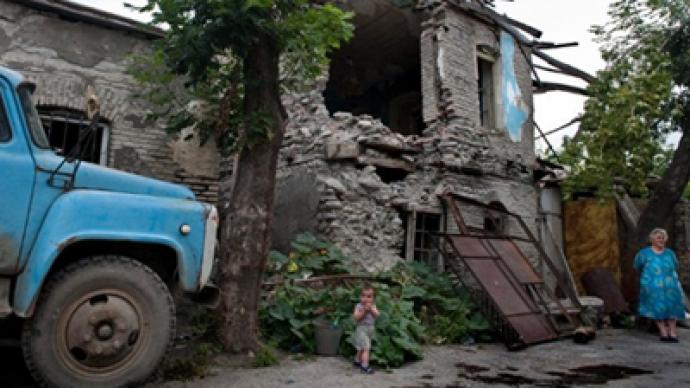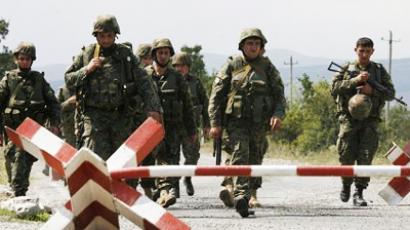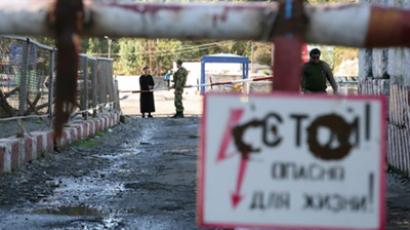Aiding the return to normality a priority after Caucasus war – Moscow

Moscow believes that the Parliamentary Assembly of the Council of Europe (PACE) should focus on the humanitarian consequences of the August 2008 war in the Caucasus, the deputy head of the Russian delegation Leonid Slutsky has said.
The statement was made after Monday’s closed-door hearings on the Russian-Georgian dossier in Paris. Slutsky said that it is time to stop mutual accusations and to think how to help people in Abkhazia and South Ossetia and return their lives to normal. “[Russia] urged PACE to focus on the humanitarian component:that is on the position of refugees after the well-known events of August 2008 in South Ossetia," Slutsky – who is also the first deputy chairman of the State Duma International Affairs Committee – told Interfax on Tuesday. PACE agrees that stability in the region is a priority and the participants of the talks must achieve concrete results on this 'humanitarian dimension" of the consequences of the war “without further delay”.Opening the hearing, PACE President Mevlüt Çavusoglu said, "We should not argue about the past anymore – we need to discuss the future”. But Tbilisi, apparently, is not ready to focus attention only on the humanitarian issues and to put aside politics for a while. The Georgian delegation to the assembly boycotted the hearing organized by the PACE Monitoring Commission.Commenting on the decision not to attend the meeting, the delegation member Georgy Gabashvili explained that the Georgian side does not believe "it is possible to conduct further discussions until Russia clearly states whether or not it is ready to follow the recommendations of the Council of Europe". He added that Tbilisi “fulfilled all of its obligations, Russia has fulfilled none", cited RIA Novosti. Russsia’s Leonid Slutsky said that he would prefer not to comment on “this demarche”. He added that the discussion “in the absence of Georgians was calm” and all the speakers – representatives of international organizations – managed to voice their stances “without rude hails and statements”.The Council of Europe Secretary General Thorbjorn Jagland expressed his regret over Tbilisi’s refusal to attend the gathering.“I don’t think that this decision has helped [the hearing],” he said in an interview with RIA Novosti.He noted though the importance of the event as it is crucial to have a chance for dialogue on all levels in the current situation.Meanwhile, there were two more sides to the 2008 conflict meeting. South Ossetia and Abkhazia were not invited to take part in the hearing in Paris, which, according to the Russian side was not right. The Russian delegates proposed that lawmakers from both republics should take part in future hearings on the matter. "We believe that it is very important that Council of Europe parliamentarians hear the opinions of deputies from those two states as well," Slutsky said.As yet it is not clear whether it will be possible to bring all the four sides of the 2008 conflict into one room for a constructive discussion.Earlier, Georgian delegate Gabashvili said that Tbilisi was not happy with Moscow’s “provocative attempts to involve representatives of the marionette regimes into the dialogue”. Overall, the Paris talks on Monday brought no breakthrough results and it was agreed to continue discussions later in January at the Monitoring Commission session. Since the 2008 war, PACE has discussed Russia-Georgia relations on a number of occasions.However, the focus has changed slightly after it was officially confirmed that Tbilisi was responsible for unleashing the Five-Day war. In autumn 2009, a report commissioned by the Council of the European Union was published. According to the findings of a group of over 30 European military, history and legal specialists headed by Swiss diplomat Heidi Tagliavini, it was Georgia who fired the first shot and the opening attack was not justifiable under international law.
Georgian behavior “offensive” to PACE
The problem now is that many Assembly members still have difficulty accepting that their initial conclusions over Russia’s responsibility for the conflict were wrong. That is the opinion that the head of the Russian delegation to PACE, the chair of the State Duma's Committee for International Affairs, Konstantin Kosachev voiced in an interview with Rossiyskaya Gazeta (RG) daily. While no one is accusing Russia any longer, “there are very few people [at PACE] who would openly agree that it was a mistake and Georgia is fully responsible for the conflict,” he said. Since the August war, PACE has passed five resolutions over the matter. “To our deep regret, all these resolutions included demands that were impossible to fulfill as they were then dictated to the Assembly by the Georgian side,” Kosachev said. Now there are more and more reasonable members of the body who understand that it is a dead-end situation and in an attempt to break the endless cycle try to seek new approaches. The tone of the Paris hearing was different compared to what it was before, “it was a lot more constructive and substantial”. The Russian MP said that “for the first time since the conflict” he is optimistic and hopes that PACE will finally find its place in the talks between the confronting sides and benefit the process. As for Tbilisi’s refusal to attend hearings in Paris, the official said that no one at the Assembly understands or supports that “odious” stance. “Many consider such behavior offensive towards PACE,” Kosachev noted.The main reason for their refusal to take part in the meeting, he believes, was the fact that the talk has moved from being emotional to being factual and constructive. “In these circumstances our Georgian colleagues, perhaps, find it difficult to continue misleading European partners,” he said.













